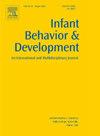A screening measure for infant attachment: The Turkish adaptation of the Brief Attachment Scale-16
IF 1.9
3区 心理学
Q3 PSYCHOLOGY, DEVELOPMENTAL
引用次数: 0
Abstract
Considering the need for a brief but valid screening measure for infant attachment, we aimed to examine the psychometric quality of Cadman et al.’s (2018) Brief Attachment Scale-16 (BAS-16) in Turkish mother-child samples. The validity of the BAS-16 Turkish was examined in two independent samples based on its associations with well-established constructs of attachment security and maternal sensitivity, child adjustment, and temperament measures, namely, the Attachment Q-Set (AQS), the Maternal Behavior Q-Set (MBQS), the Child Behavior Checklist (CBCL), the Emotionality, Activity, Sociability Temperament Survey (EAS), respectively. The results of Study 1 and Study 2 supported the two-factor structure of BAS-16 Turkish. In Study 1, the BAS-16 Turkish total scores were significantly associated with the AQS security and MBQS sensitivity scores, and marginally with child externalizing problems but not with child temperament. In Study 2, aiming to cross-validate the findings of Study 1, the BAS-16 Turkish total and subscale scores strongly correlated with the AQS security scores; the BAS-16 Turkish total and Harmonious Interaction (HI) subscale scores were related to the MBQS sensitivity scores. In both samples, regression analyses showed that maternal sensitivity significantly predicted the BAS-16 Turkish total score above and beyond the effects of demographic characteristics and temperament. The findings from two studies suggest that the BAS-16 has adequate validity in assessing infant/child attachment in Turkish samples, representing a non-WEIRD cultural context, and can be used as a practical screening tool.
婴儿依恋的筛选措施:简短依恋量表-16的土耳其改编
考虑到需要一个简短但有效的婴儿依恋筛查措施,我们的目的是在土耳其母子样本中检验Cadman等人(2018)简短依恋量表-16 (BAS-16)的心理测量质量。BAS-16土耳其语的有效性在两个独立的样本中进行了检验,基于其与已建立的依恋安全和母亲敏感性、儿童适应和气质测量的关联,即依恋q集(AQS)、母亲行为q集(MBQS)、儿童行为检查表(CBCL)、情绪、活动、社交气质调查(EAS)。研究1和研究2的结果支持BAS-16土耳其语的双因子结构。在研究1中,BAS-16土耳其总分与AQS安全性和MBQS敏感性得分显著相关,与儿童外化问题轻微相关,但与儿童气质无关。在研究2中,为了交叉验证研究1的结果,BAS-16土耳其总分和子量表得分与AQS安全得分呈强相关;BAS-16土耳其总分和和谐互动(HI)分量量表得分与MBQS敏感性得分相关。在这两个样本中,回归分析表明,母亲敏感性显著预测BAS-16土耳其总分高于人口统计学特征和气质的影响。两项研究的结果表明,BAS-16在评估土耳其样本中的婴儿/儿童依恋方面具有足够的有效性,代表了非weird文化背景,可以用作实用的筛选工具。
本文章由计算机程序翻译,如有差异,请以英文原文为准。
求助全文
约1分钟内获得全文
求助全文
来源期刊

Infant Behavior & Development
PSYCHOLOGY, DEVELOPMENTAL-
CiteScore
4.10
自引率
4.80%
发文量
94
期刊介绍:
Infant Behavior & Development publishes empirical (fundamental and clinical), theoretical, methodological and review papers. Brief reports dealing with behavioral development during infancy (up to 3 years) will also be considered. Papers of an inter- and multidisciplinary nature, for example neuroscience, non-linear dynamics and modelling approaches, are particularly encouraged. Areas covered by the journal include cognitive development, emotional development, perception, perception-action coupling, motor development and socialisation.
 求助内容:
求助内容: 应助结果提醒方式:
应助结果提醒方式:


